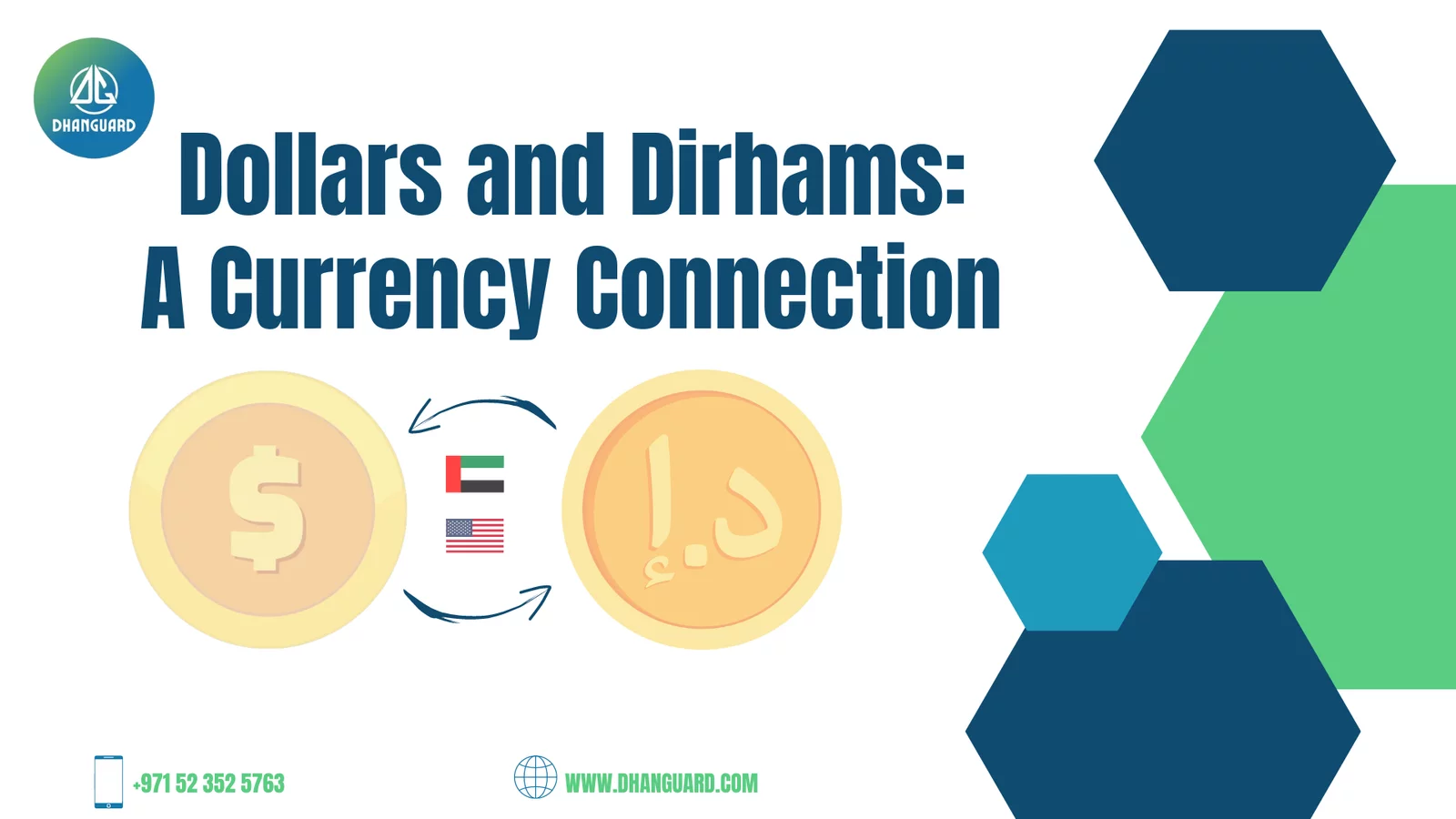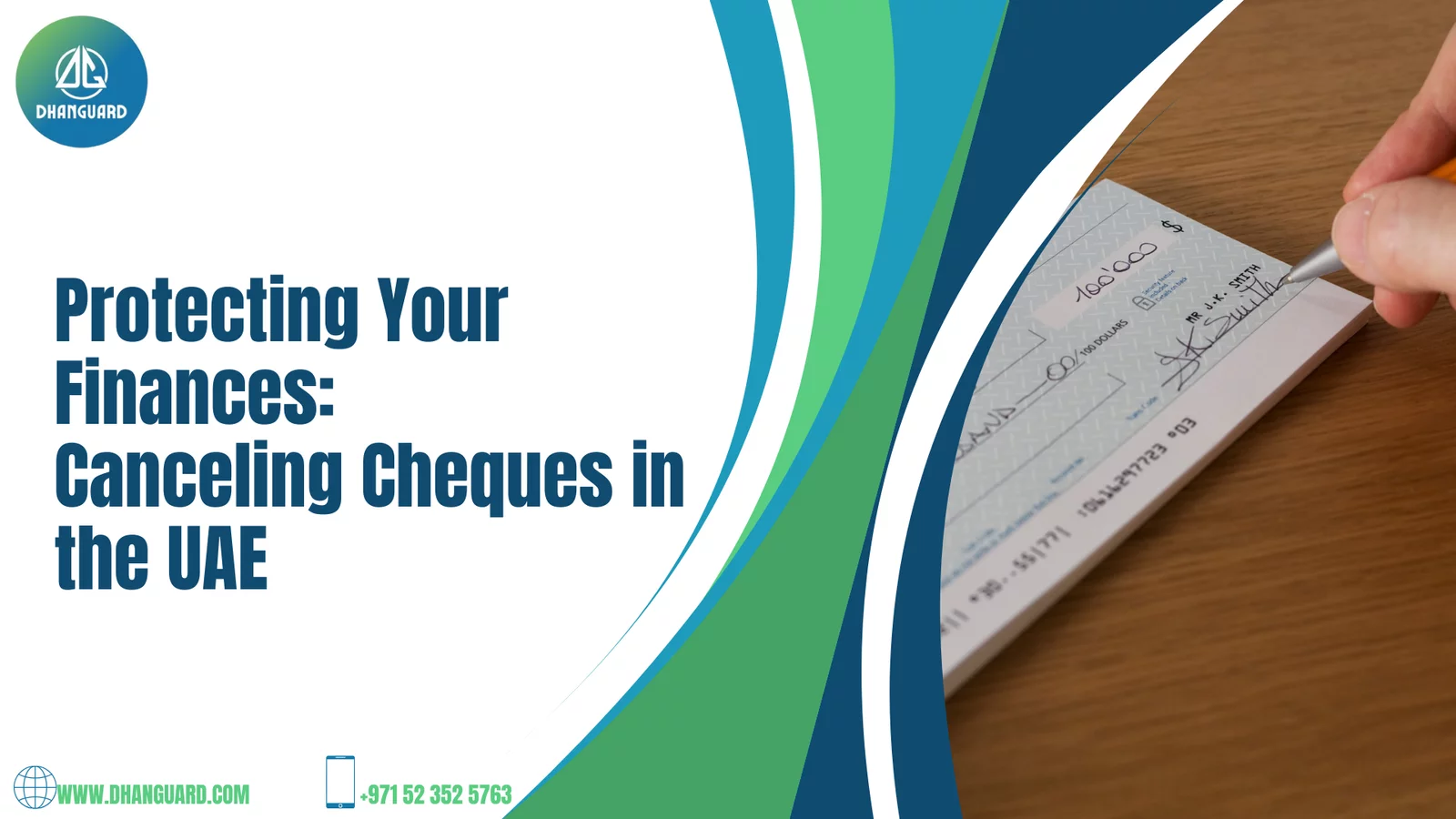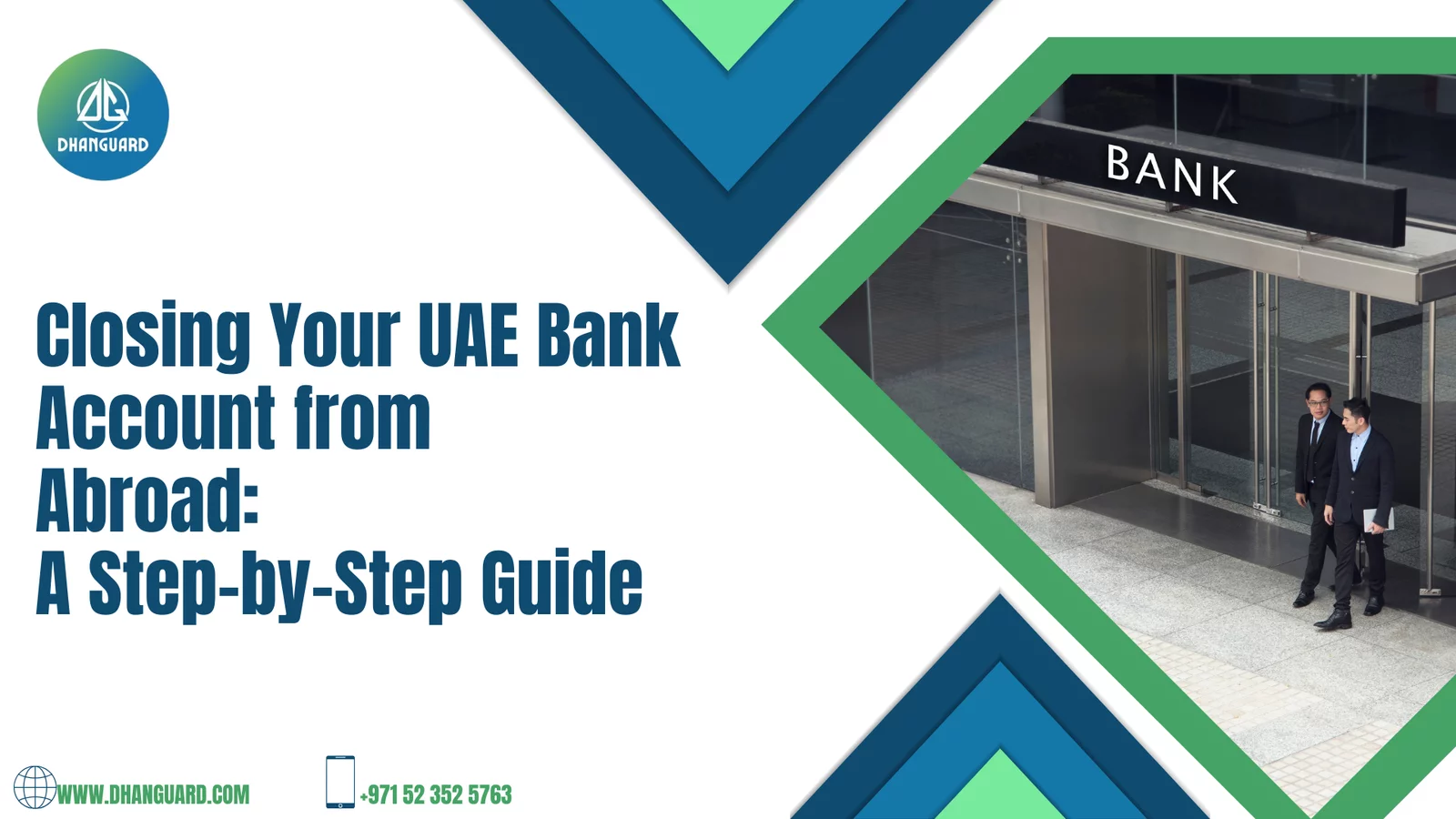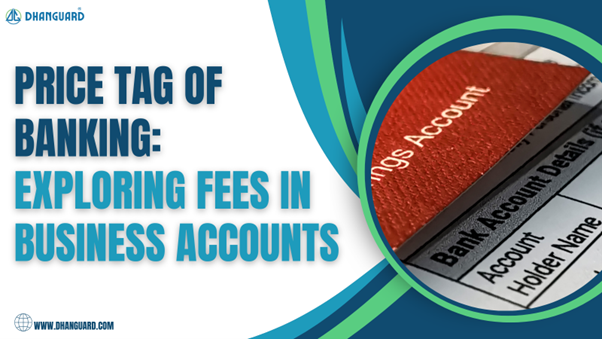Navigating the Dynamics of Currency Pegging in Dubai
In international finance, currency pegging holds significant importance. Dubai, as well as the United Arab Emirates (UAE), has placed significant importance on its economic stability and growth through its ties with the US Dollar (USD). This blog offers an extensive roadmap for comprehending how UAE Dirhams are pegged to the US Dollar. It endeavours to illuminate the workings, advantages, and ways Dhanguard can help individuals manoeuvre this complex financial terrain.
What is Currency Pegging?
Currency pegging entails adopting a monetary approach wherein a nation's currency is attached or linked to another currency, often the US Dollar or the Euro, renowned for its stability and global recognition. This measure involves establishing an explicit exchange rate at which the domestic currency can be converted into the reference currency. Currency pegging stabilizes a nation's economy by reducing exchange rate fluctuations and promoting predictability in international trade and investment.
Benefits of Currency Pegging
Some of the benefits of Currency Pegging are as follows:
Price Stability:
Pegging the AED to the USD provides a stable environment for businesses and consumers, as it minimizes currency fluctuations and the accompanying uncertainties.
Attracting Investments:
The peg attracts foreign direct investments by reducing exchange rate risk, making the UAE an attractive destination for investors.
Trade Facilitation:
Stable exchange rates make international trade more predictable and efficient, fostering economic growth and diversification.
Low Inflation:
Pegging helps control inflation by anchoring the local currency to the stable USD, indirectly influencing price stability
Understanding the US Dollar Peg
The US Dollar peg is a fixed exchange rate system wherein the local currency, in this case, the UAE Dirham, is tied to the US Dollar at a specific rate. Since 1978, the UAE Dirham has been pegged to the US Dollar at a rate of 3.67 AED to 1 USD. This pegging mechanism ensures stability in international trade and investments and encourages foreign investors to participate in the UAE's thriving economy. Some studies in 2018 concluded that it was time to reconsider the dollar's peg, assess the volatility, and move on. The fundamental explanation for the peg is that oil exports are traded in USD, making oil-related transactions more convenient and thus helping to stabilize the UAE economy.
How does the Fixed Exchange rate work in the UAE?
A fixed or pegged exchange rate involves harbouring the domestic currency to a foreign currency to ensure a constant exchange rate. One of the critical facts about Fixed Exchange Rates is that it promotes international trade by obliterating the exchange rate risks.
The UAE's currency is pegged to the US dollar at a fixed rate of 3.6725 to 1. Since oil and gas products are valued in US dollars, this exchange rate regime has enabled the UAE to reduce the volatility of its hydrocarbon export earnings. Furthermore, the fixed exchange rate has helped the country boost investor trust by eliminating exchange rate uncertainties. The fixed exchange rate, in particular, forces the UAE to maintain interest rates equivalent to those in the United States to avoid speculative capital flows.
Components of Pegging
The Components of Currency Peg are as follows-

Domestic Currency
This is the currency of the country implementing the money-pegging arrangement. The domestic currency's value is fixed to another currency (the anchor currency) or a specific exchange rate under the pegging system.
Exchange Rate
The exchange rate represents the value of the domestic currency in terms of the anchor currency (or the currency to which it's pegged). This fixed exchange rate determines how much of the domestic currency is equivalent to a unit of the anchor currency. For example, if the exchange rate is 1:1, then one branch of the domestic currency equals one unit of the anchor currency.
Anchor Currency (Foreign Currency)
The anchor currency is the currency from which the domestic currency is pegged. It is usually a stable and widely accepted currency in international trade and finance. The exchange rate between the domestic and anchor currencies is fixed and maintained as part of the currency pegging system.
These three components interact in a currency-pegging arrangement to create a fixed exchange rate regime. Such a system aims to provide stability and predictability in international trade and financial transactions by reducing exchange rate volatility. However, maintaining a currency peg can also present challenges, significantly if economic conditions diverge between the pegged country and the anchor country. Central banks often must intervene in the foreign exchange market to ensure the exchange rate remains within the desired range.
Benefits of USD Pegged with Dirham in Exchange Rate Of UAE
Pegging the UAE Dirham (AED) to the United States Dollar (USD) can benefit the UAE's exchange rate and overall economic stability.
Here are some of the key advantages:
-
Exchange Rate Stability: One of the primary benefits is exchange rate stability. When a currency is pegged to a stable foreign currency like the USD, it provides high predictability and stability in the exchange rate. This stability is particularly beneficial for businesses engaged in international trade, as they can plan and budget more confidently.
-
Reduced Exchange Rate Risk: Pegging to the USD reduces exchange rate risk for businesses and individuals. This means that fluctuations in the exchange rate between the AED and USD are minimal. Companies can engage in international transactions without worrying about sudden and unpredictable currency value changes.
-
Encouraging International Trade: A stable exchange rate promotes international trade by making it easier for UAE businesses to engage with global markets. This can lead to increased export opportunities and economic growth.
-
Inflation Control: Pegging to the USD can help control inflation by limiting the ability of the UAE's central bank to print excessive amounts of money. This is important in an economy that relies heavily on imports because excessive money supply growth can lead to inflation, eroding purchasing power.
-
Simplicity in International Transactions: A pegged exchange rate simplifies international transactions. Businesses don't have to constantly monitor and hedge against exchange rate fluctuations, which can be administratively complex and costly.
-
Financial Market Stability: Pegging to a robust and widely accepted currency like the USD can contribute to the stability of the UAE's financial markets. It can attract foreign investors and create a more robust financial sector.
-
Government Fiscal Discipline: Maintaining a currency peg often requires a country to follow responsible fiscal and monetary policies. This discipline can help ensure sound economic management and government accountability.
How Dhanguard Can Help?
Navigating the complexities of currency pegging, especially in a dynamic market like Dubai, requires specialized knowledge and strategic guidance. Dhanguard is well-versed in financial dynamics and offers tailored solutions to your needs. We provide:
-
Expert Guidance
-
Risk Management Strategies
-
Market Analysis
-
Investment Advice
Conclusion:
The US Dollar peg has been crucial in maintaining economic stability and fostering growth in Dubai and the wider UAE. By understanding this peg's mechanisms, benefits, and challenges, individuals and businesses can make informed decisions to navigate the financial landscape effectively. We stand ready to provide expert guidance and solutions tailored to your needs, ensuring you harness the full potential of the US Dollar peg in UAE Dirhams. Contact us today to embark on a journey of financial empowerment.
DhanGuard: All-in-One Solution for Business Setup in Dubai, UAE
DhanGuard is your ultimate one-stop solution for all your business needs. Whether you’re planning to set up a new company or expand your existing business in the UAE, we’ve got you covered with our comprehensive range of services. From Company Formation in UAE and Business Bank Account in UAE services to managing your financial and legal compliance, we provide everything you need under one roof.
Our services include:
- Company Formation in UAE and Dubai
- Opening a Business Bank Account in UAE and Dubai with a 99% success rate
- VAT & Corporate Tax Compliance
- Accounting, Bookkeeping, and Auditing Services
- Trade License Renewal
- Golden Visa Assistance
Let DhanGuard make your journey of Business Setup in Dubai seamless and hassle-free!














